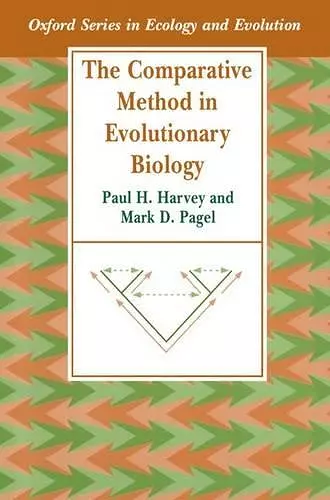The Comparative Method in Evolutionary Biology
Format:Paperback
Publisher:Oxford University Press
Published:18th Apr '91
Currently unavailable, and unfortunately no date known when it will be back

From Darwin onward, it has been second nature for evolutionary biologists to think comparatively because comparisons establish the generality of evolutionary phenomena. Do large genomes slow down development? What lifestyles select for large brains? Are extinction rates related to body size? These are all questions for the comparative method, and this book is about how such questions can be answered. The first chapter elaborates on suitable questions for the comparative approach and shows how it complements other approaches to problem-solving in evolution. The second chapter identifies the biological causes of similarity among closely related species for almost any observed character. The third chapter discusses methods for reconstructing phylogenetic trees and ancestral character states. The fourth chapter sets out to develop statistical tests that will determine whether different characters that exist in discrete states show evidence for correlated evolution. Chapter 5 turns to comparative analyses of continuously varying characters. Chapter 6 looks at allometry to exemplify the themes and methods discussed earlier, while the last chapter looks to future development of the comparative approach in both molecular and organismic biology.
'Harvey and Pagel's compelling survey of the powerful analytical techniques currently available for the study of adaptation in a phylogenetic context provides the basis for new and deeper insights into the origin of and maintenance of organic diversity.' Science, Vol. 254, 1991
ISBN: 9780198546405
Dimensions: 234mm x 155mm x 15mm
Weight: 399g
248 pages